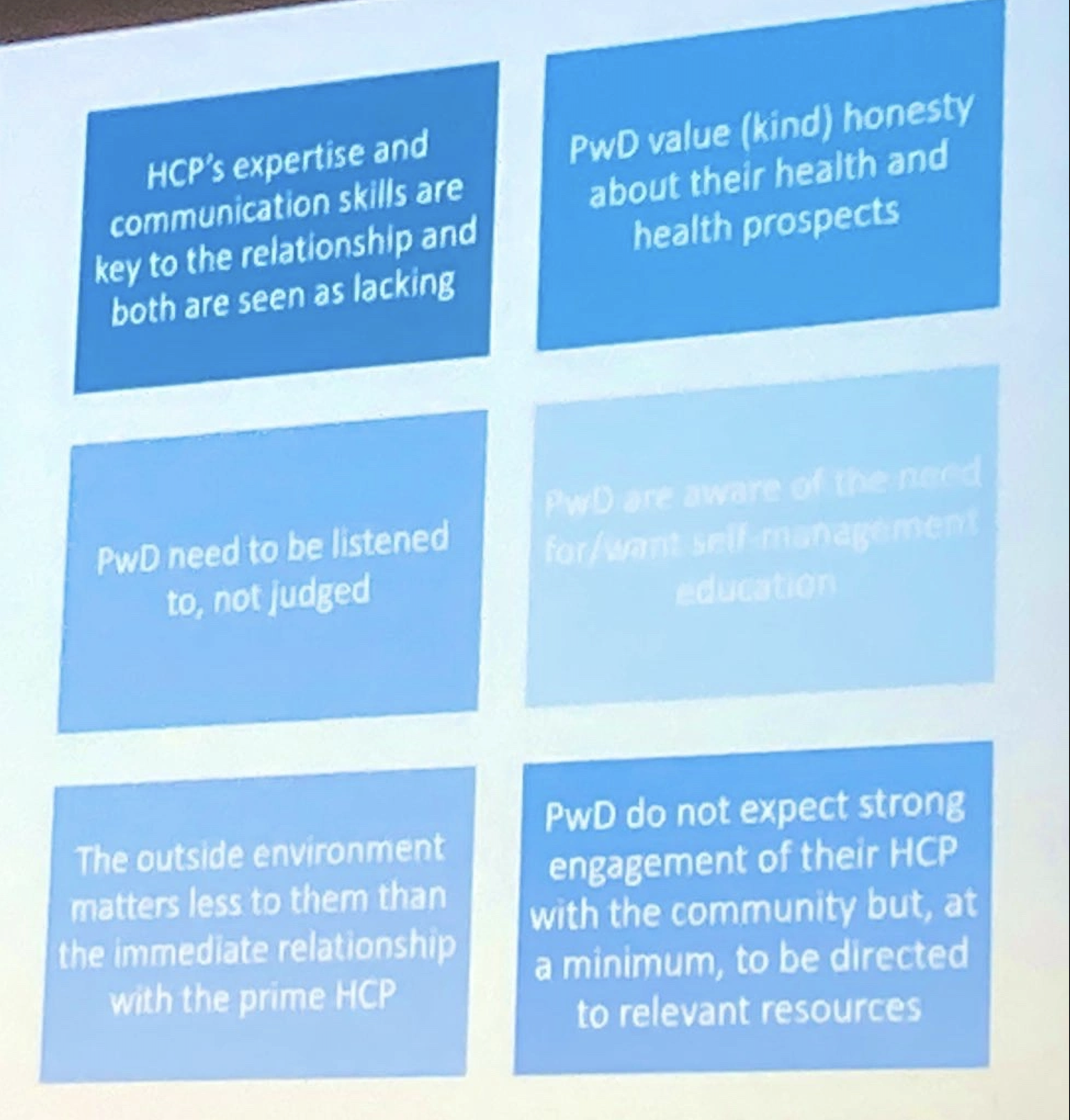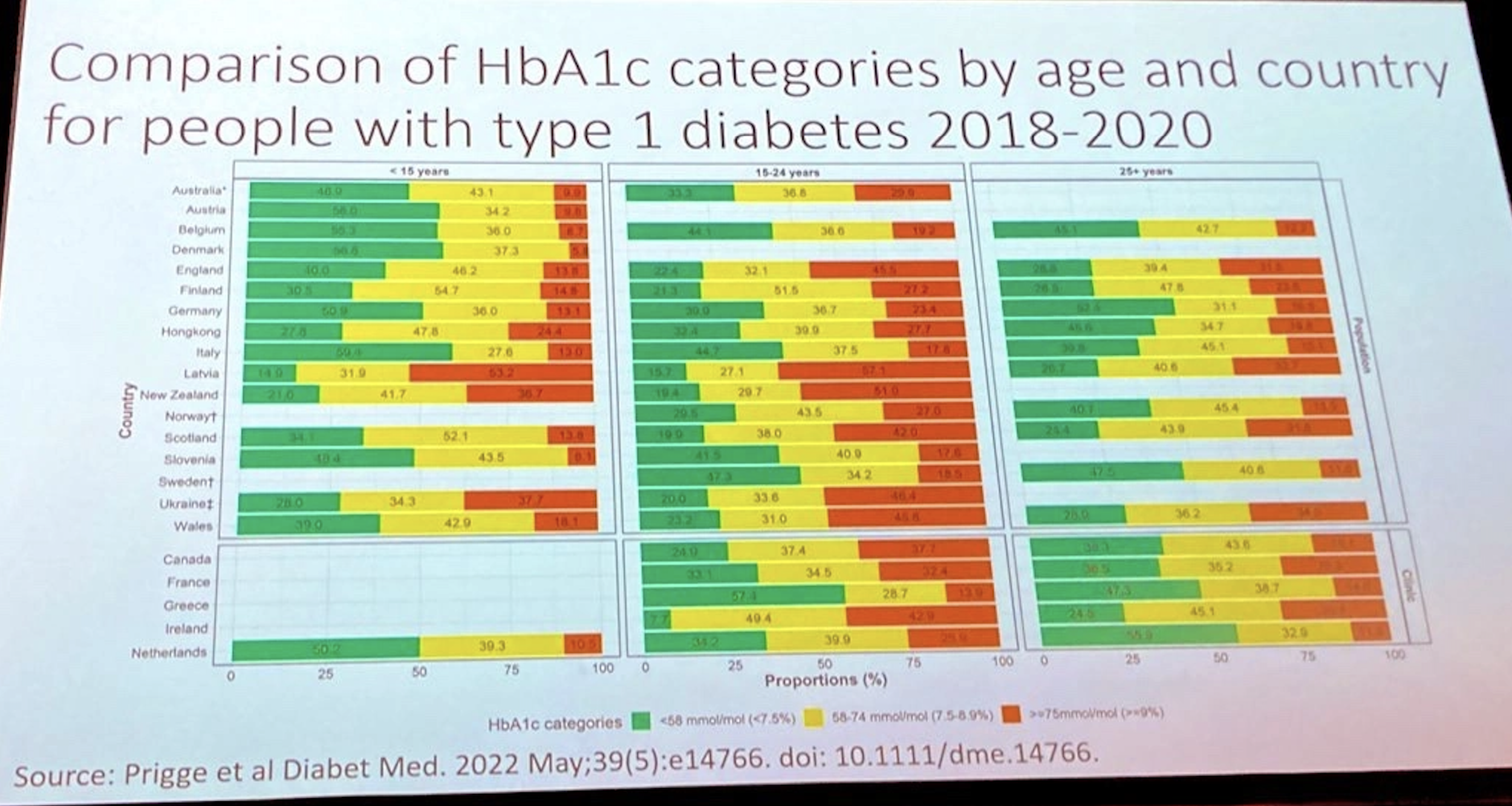Attending EASD as a #dedoc° voice: a look back at last year’s conference
Dawn Adams attended EASD 2022 in Stockholm, Sweden, as a #dedoc° voice — and she’ll soon be doing it all again and setting off for Hamburg, Germany, to attend EASD 2023. If you’re wondering what it’s like to attend EASD, then Dawn’s article covering last year’s conference will give you an insight into what to expect!
#dedoc° voice Dawn Adams attended EASD 2022 in Stockholm — this year, she’ll attend the 2023 conference in Hamburg. Source: #dedoc°
In September 2022, I travelled to Stockholm thanks to a scholarship from #dedoc° and a press pass from the European Association for the Study of Diabetes (EASD). This was my second foray into the world of European diabetes conferences – I had a similar scholarship to attend the Advanced Technologies & Treatments for Diabetes (ATTD) international conference in April 2022. These conferences are among the largest scientific conferences exploring the complexities of diabetes and ways of improving outcomes for those living with this multifactorial chronic condition.
Diabetes stigma and its impact on mental health
One of the most potent elements of any diabetes event is being with people who understand the complexity of diabetes. They are people who live with all shades of this condition and have experienced every imaginable success and sadness. The group included people with type 2 diabetes (T2D), an amputee, people with visual impairments, a parent-to-be, the children of people living with diabetes (PWD), the partners of PWD, the parents of PWD, and healthcare professionals (HCPs) working with PWD. Regardless of where in the world people had travelled from, regardless of their healthcare system, regardless of cultural differences, the collective diabetes experiences of the group resonated strongly. And underpinning the delegation’s cohesion was the desire to break down the all too prevalent shame and stigma.
A slide presented at EASD 2022: PWD share their experience with their HCPs. Source: Dawn Adams
As the previous image shows, there is fatigue amongst PWD. In spite of the powerful messaging from a number of speakers about burnout, distress and the fatigue of living with diabetes, there were speakers who still talked at length about “lack of compliance”, “disengagement”, “unwillingness”, “non-compliance with management regimes”, “lack of adherence”, and more. These presentations focused on HbA1c, weight, activity and diet. They didn’t acknowledge the psychosocial factors or socioeconomic complexities of managing a chronic condition. It is so disheartening when HCPs and academic researchers fail to see that a disconnect with self-management is indicative of more pressing issues in our non-diabetes lives. Grief, trauma, stress, financial burdens, sickness (our own and that of family members or close friends) all take precedence over self-management.
A comparison of HbA1c categories by age and country for people living with T1D from 2018-2020 showing improvements and reduction in levels across various demographics. Source: Dawn Adams
Nothing about us without us: the push to include people with diabetes in research
There is also an academic arrogance at conferences. The research papers which are presented generally report back on findings elucidated from people living with diabetes. But those same research participants are rarely informed of the research outcomes and conclusions they contributed their time and data to generating. Best practice would be to share this new knowledge with study participants to enable them to implement the key areas for future improvements and better personal outcomes. This was a point I raised at the IDF Symposium, which was hosted by Niti Patel, to positive feedback from the panel.
Dawn speaks about the importance of relaying research results to participants at the IDF Symposium. Source: Dawn Adams
From diabetes technology to peer support: improving lives of PWD
In spite of the less positive commentaries, there was an acknowledgement that many more of us living with diabetes are living better lives than our successors did. This is potentially due to improved education, access to glucose measuring technologies and peer support.
The DCCT showed that HbA1c is a key measure in diabetes outcomes. The standardisation programmes took place in the US, Sweden and Japan and gave different results. In 1994 the IFCC working group developed a global reference system. Source: Dawn Adams
The power of peer support was evidenced in the interactions between group members. Hypo alarms? Treats galore were produced! Forgotten or lost insulin pens? Resources were shared. Sensor issues? An array of glucometers were made available. Difficulties with walking long distances? Taxis were booked. Language or dialect issues? Interpreters were always available. Concerns re: accessibility of tweets? Proofreading, editing and guidance was constantly available.
Dawn Adams at EASD 2022 with other #dedoc° voices and diabetes advocates. Source: Dawn Adams
And obviously, for the times we are living in, there was more than a nod in the direction of COVID-19 and its impact on our communities. One of the final sessions I attended was chaired by the spectacular Kamlesh Kunti with panellists including Sami Hajdadj, Didac Mauricio and Rustam Rea. Like everything involving diabetes, the level of difference between the studies presented made it difficult to reach any firm conclusion regarding COVID and diabetes aside from: get vaccinated, wear masks (not an easy task when eating or drinking with your diabuddies or anyone for that matter) and maintain social distancing.
A graph showing risk factors with Covid in people with diabetes and without diabetes in Spain. Source: Dawn Adams
It was a phenomenal experience attending EASD2022. My final thoughts…? If you have the opportunity to attend any diabetes conference or event, take that opportunity. Share your experiences and those of your community.
Are you attending EASD 2023? What are you most looking forward to? Let us know in the comments! Found this article insightful? Please spread the word and share it with your network.This article was originally published on Dawn’s blog, ‘Sugar Snap’, on 03 Janurary 2023.





